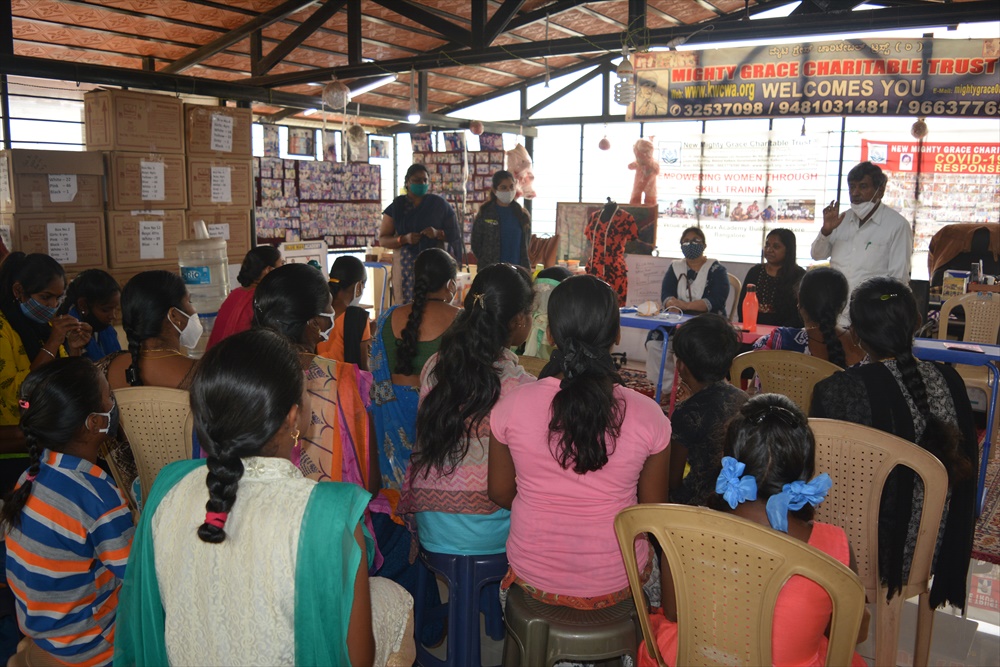Skill Training and Livelihoods
From the start of NMGCT’s work with urban poor youth in the slums of North Bengaluru in 1986, it was observed that at least 30-40% of youth from disadvantaged backgrounds, first generation literates, or those from ethnic and religious minority communities tended to drop out of high school due to poverty, inability to cope with academics (particularly first generation literates) and requirement from older girl children to stay back at home to care for younger siblings. The lack of a school final certificate meant that such youth could not get admission to vocational training courses, for which the first criterion is a school pass certificate. The high cost of external training courses, distance from the home and the fact that most courses were in English, were further deterrents.
This resulted in youth going into casual work or other under-paid work, mostly in the unorganized sector – such as daily wage labourers, loaders, small pushcart vendors, etc. They worked in hazardous conditions with no protective gear, exploitation from employers and middlemen and no statutory or medical benefits. This adversely impacted the quality of their life, health and economy and led to young people getting into crime, violence, addiction to alcohol and drugs, gang wars, theft and other such anti-social behaviour. For young women, it resulted in violence against them in the home, early marriage and motherhood. NMGCT believes that skill and knowledge are driving forces for economic growth and social development, and that good livelihoods result in financial self-sufficiency and higher respect from society. Empowering young men and women with opportunities for skill development would help them reach long-term sustainable livelihoods, foster entrepreneurship, and help grow their careers.
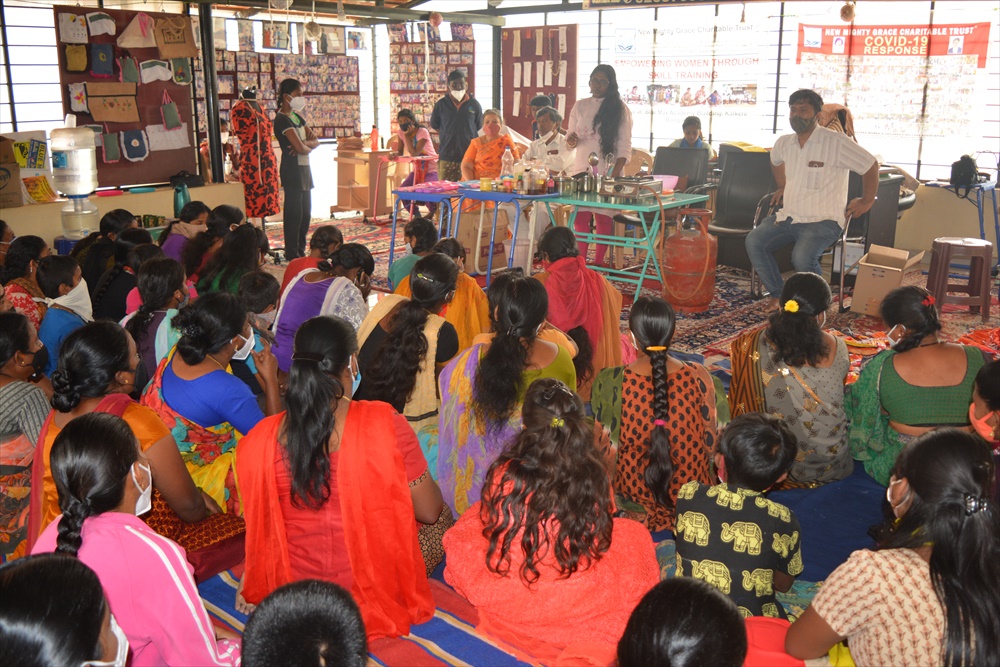
Pragati Skill Development Centre
The plight of youth seeking decent livelihoods without having adequate skills led to the establishment of the Pragati Skill Development Centre in 2020. Pragati was aimed to bring Job-Oriented Vocational Training within the reach of such Disadvantaged Youth from urban slums, to enable them to access decent employment opportunities, that would contribute as much to their financial stability as it would to their sense of self-worth and dignity. Started in a small building in Kalkere Village, Prgathi initially offered 6-month courses in Tailoring and Screen Printing as well as Home Management skills for domestic workers.
Later on, as the market demand was seen with the emergence of larger numbers of shopping malls and need for trained youth to be employed in these, and as more youth began enrolling for training, the courses were expanded to include Electronic Assembly Work, Desk Top Publishing (DTP), Computer Office Applications, Beauty Care and Graphic Design. In particular, skill training in tailoring and beauty care were extremely popular among girls from minority communities such as Muslim families who, bound by cultural and religious practices, would not allow them to go out and seek training or employment. All NMGCT’s courses are offered free of cost to youth aged 18-30, and at least 25% of youth who enrol for them are referred by Government Homes, Child Welfare Committees or other NGOs. In the early years of training, it was mostly boys who enrolled for the courses, as many parents were hesitant to send their girls. However, through community mobilization, word of mouth and role modelling of the few young women that did enrol, more families began to send their girls for the training. Today, 60% of all NMGCT’s vocational skill trainees are girls and women.
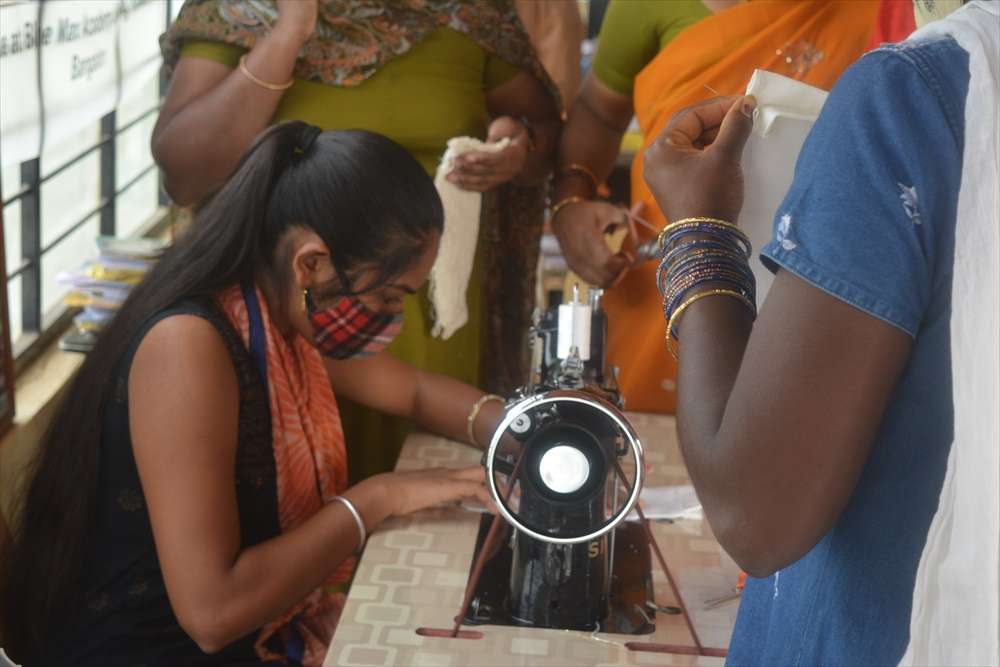
UP-SKILLED
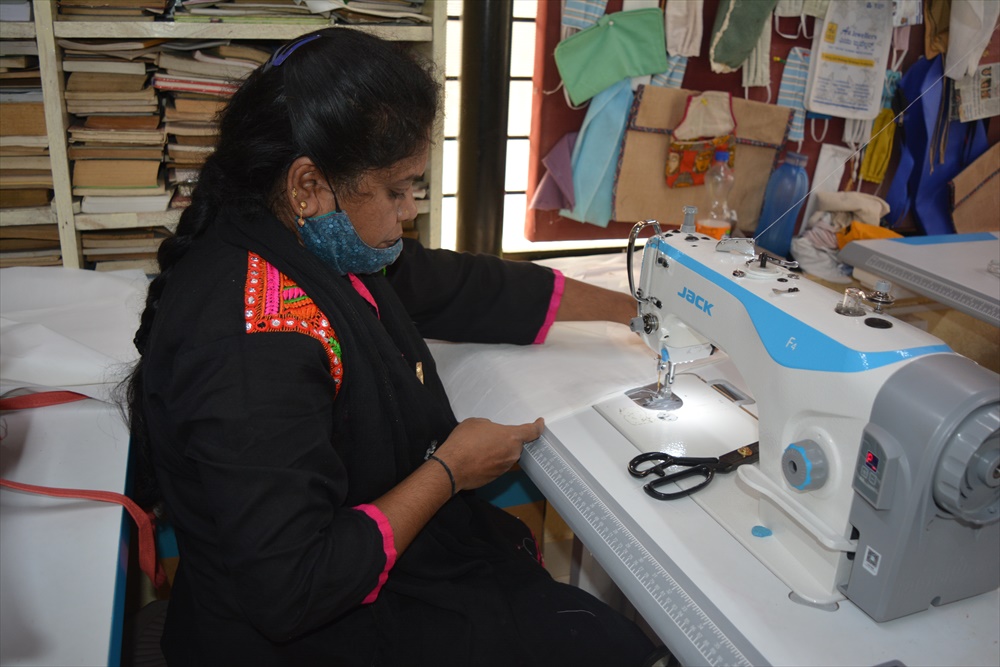
INCOME INCREASE (%)
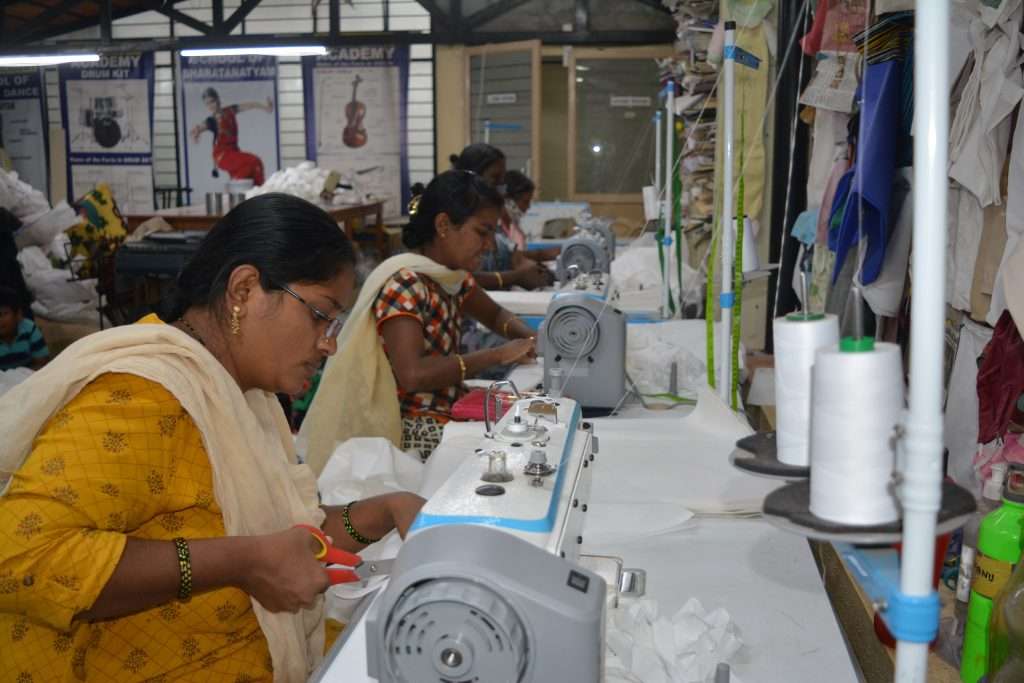
COVID-19 RELIEF IMPACT
Low-income community women directly
Average increase in income levels for women
People
Success Stories

Ms. Geethamma, 35 years old, is employed as a tailor in a garments factory in Bangalore. Her husband works as a daily wage driver. She has been associated with our organization for the past 2 and a half years. During the lockdown, they faced numerous challenges for their survival. It was during this time that she learned about our organization while we were distributing ration kits to those in need.
Ms. Geethamma shared her problems with us, and she was encouraged to join the tailoring program at our training center. She started stitching masks, potlis, bags, jute products, denim, and also learned cutting fabrics. Through this process, she gained confidence in her skills and realized that she could support her family and take care of herself. Currently, she earns a minimum of 3,000 to 4,000 rupees per month.
Ms. Geethamma’s success story showcases how our organization provides training and opportunities for individuals to develop their skills and become self-sufficient. We are proud to have been a part of her journey towards empowerment and improved livelihood.






